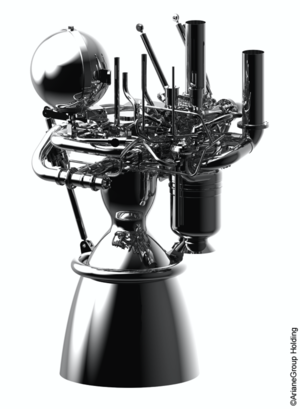Wanted: new ideas to live off Moon resources
Making use of the very first resources of another world would be a major feat for our species, bringing us closer to living in space to stay. But reaching such a milestone will take sustained inventiveness and effort – so ESA invites your ideas to help make it happen.

Making use of space resources will be crucial for sustainable space exploration, enabling us to reduce the costs and risks associated with transporting resources from Earth across space. The Moon is a particularly promising target for resource extraction, given its proximity to Earth and abundance of resources available.
Lunar-sourced resources such as oxygen, metals, lunar regolith and water ice look likely to play a fundamental role in in-space economies. Applications include life support, refuelling of spacecraft, energy storage, surface infrastructure construction and in-space manufacturing. With the Moon’s one sixth Earth gravity these resources could be transferred elsewhere in the Solar System on a comparatively easy and cheap basis.

That is the vision of In-Situ Resource Utilisation (ISRU) at least, but achievement is a process. A new campaign on ESA’s Open Space Innovation Platform – seeking out community input to accelerate ISRU – aims to identify knowledge and technical gaps in our current lunar space resources value chain.
Such gaps shall in turn define future contests supported by ESA in partnership with the European Space Resources Innovation Centre, ESRIC, in Luxembourg. This Identifying Challenges along the Lunar ISRU Value Chain campaign invites people to submit one or more ideas across three areas tackling crucial steps in the extraction of lunar resources.
These areas cover:
- Excavation, refining and transportation – including regolith excavation and handling, feedstock preparation and regolith transfer and delivery
- Resource extraction and processing – including regolith processing for resource extraction, separation and refinement of products with recycling and disposal of waste
- Storage, distribution and utilisation – including cryogenic liquid storage of oxygen, spacecraft refuelling, manufacturing of metal parts, surface construction and deliveries through space.

The gaps that this call will help identify will serve as the basis to define the themes of the next ESA and ESRIC Space Resources Challenges, following on from the initial joint challenge looking into the use of rovers to prospect resources.
The solutions identified via the various challenges that participants will help us define could, in the future, be tested on the ISRU Pilot Plant, an end-to-end terrestrial demonstrator plant intended to validate all necessary ISRU steps in practical terms, on Earth, and then, potentially one day, in space.

As part of its challenge-driven approach, ESA is encouraging European industry and research institutions to compete for a chance to engage further with ESA on developing their technology solution supporting the extraction and utilisation of space resources. On top of driving innovations, these challenges can kick-start commercial endeavours, which ESA will boost to accelerate the commercialisation of space.
But it all starts with you, and your ideas. To participate in this call for ideas, click here.















 Germany
Germany
 Austria
Austria
 Belgium
Belgium
 Denmark
Denmark
 Spain
Spain
 Estonia
Estonia
 Finland
Finland
 France
France
 Greece
Greece
 Hungary
Hungary
 Ireland
Ireland
 Italy
Italy
 Luxembourg
Luxembourg
 Norway
Norway
 The Netherlands
The Netherlands
 Poland
Poland
 Portugal
Portugal
 Czechia
Czechia
 Romania
Romania
 United Kingdom
United Kingdom
 Slovenia
Slovenia
 Sweden
Sweden
 Switzerland
Switzerland


























